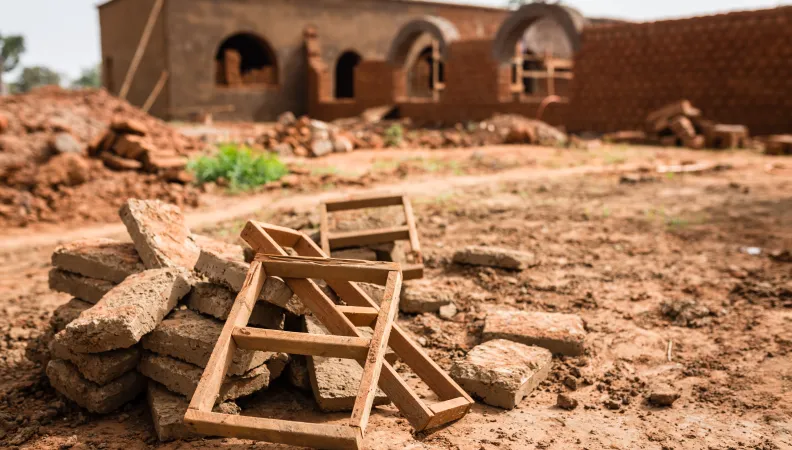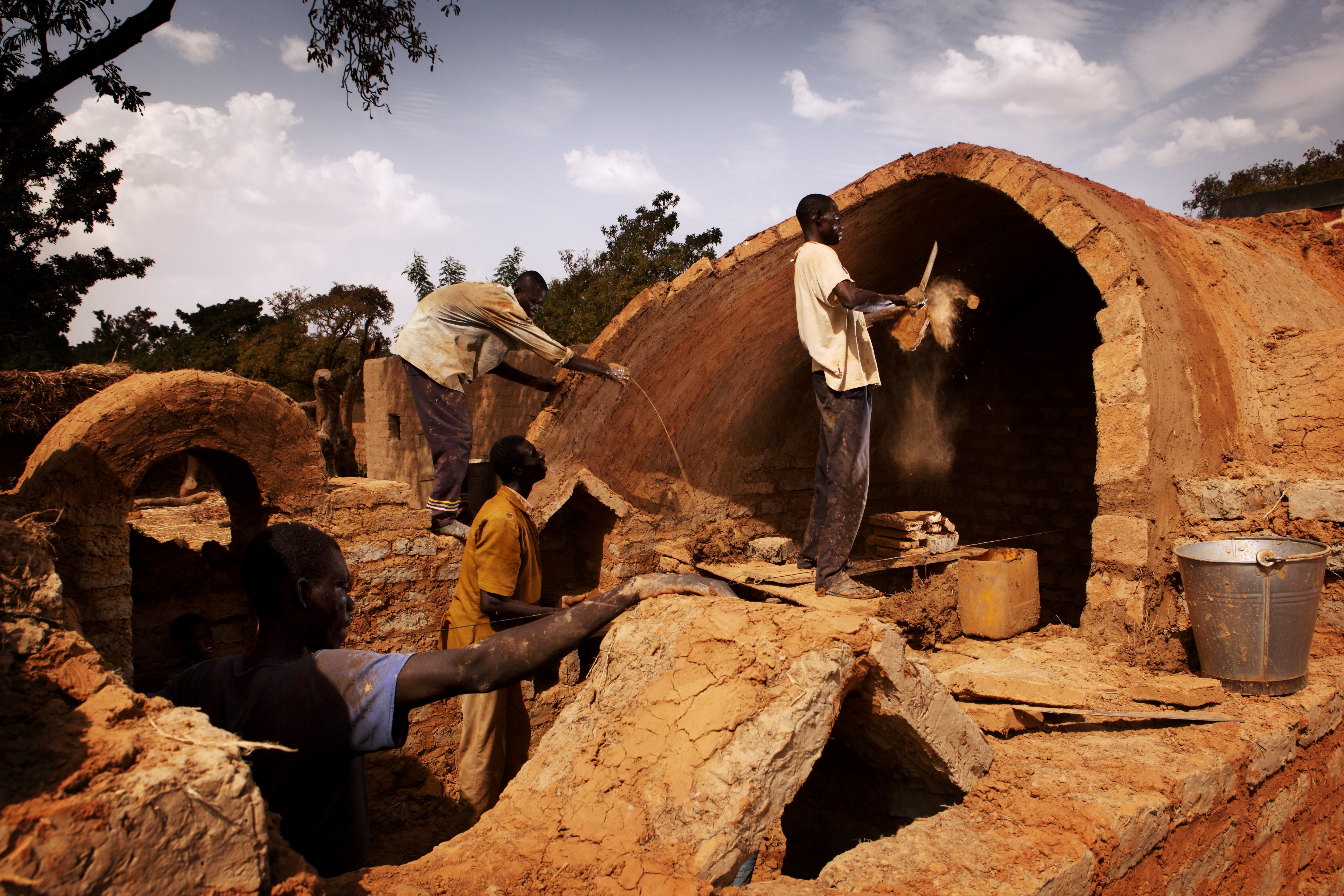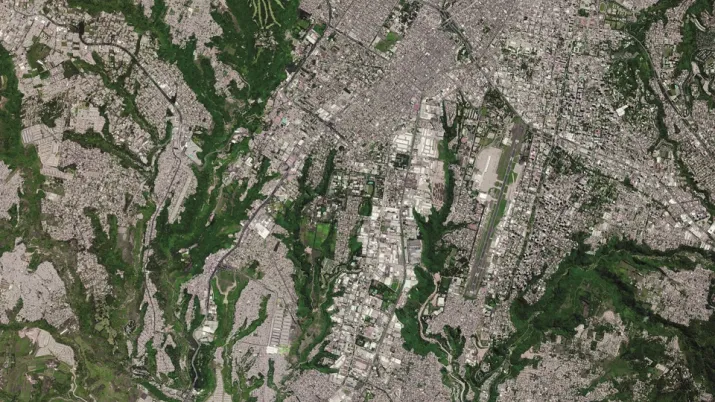Share the page
France hosts the 1st "Buildings and Climate" Global Forum to build a low-carbon future
Published on

The first Buildings and Climate Global Forum, co-organised by France and the United Nations Environment Programme (UNEP), is running from Thursday 7 to Friday 8 March. This event will welcome global players to the Palais des Congrès in Paris. The Forum follows the successful launch of the Buildings Breakthrough initiative during COP28. This initiative - supported by 28 governments and the European Commission, among others - aims to make resilient, nearly zero-emission buildings the new normal by 2030.
More than 800 participants are expected at the event. CEO and ministerial round tables, plenary sessions, solution exhibitions, collective initiative showcases and presentations will provide participants with the opportunity to build new contacts and exchange ideas. Governments are invited to endorse a framework for global efforts in the building sector for decarbonisation and resilience to climate change.
REIMAGINING THE CONSTRUCTION SECTOR’S VISION FOR BUILDING A DECARBONISED FUTURE
The building and construction sector represents21% of global greenhouse gas emissions. The impact of construction on the climate is set to increase over coming decades as a result of rapid growth, especially within urban areas in the Global South. However, the building and construction sector is not on track to achieve decarbonisation by 2050. It is therefore more urgent than ever to change how buildings are constructed and used.
With €109 million committed since 1995, the FFEM has a legacy of supporting energy transition and sustainable cities in developing countries. The challenge is to contribute to climate change mitigation and socio-economic development through sustainable and affordable access to energy.
confirmed Jérôme Gastaud, head of the FFEM’s project for low-carbon adaptation and transition of cities and regions
A SPECIAL PARTNERSHIP BETWEEN THE FFEM, MTECT AND ADEME
The Buildings and Climate Global Forum is also the occasion to present inspiring and appropriate climate solutions for populations in West Africa supported by the FFEM, the French Ministry of Ecological Transition and Territorial Cohesion (MTECT) and the French Environment and Energy Management Agency (ADEME), alongside their partners.
For Hervé Boisguillaume, MTECT’s Deputy Director of the European and International Action Directorate, and member of the FFEM’s steering committee, the FFEM’s projects are pivotal to underpin France’s positions in multilateral negotiations and bilateral cooperations:

For almost 30 years, ADEME and the FFEM have collaborated on numerous projects around the world. A special, rewarding and trusted partnership, as Philippe Masset, ADEME’s Europe & International Director describes in our latest activity report:
PROMOTING AN AFFORDABLE, RESILIENT AND SUSTAINABLE HABITAT
- In Senegal’s Dakar region the PHARD project, led by Architecture & Development, is a programme of affordable low carbon emission homes. PHARD incorporates affordable, resilient and sustainable construction techniques; the houses are built using locally-processed biosourced or recycled materials. The programme seeks to develop a turnkey operational model able to be readily replicated, in order to improve access for housing cooperatives to the “100,000 homes” programme run by the Senegalese government.
MAKING COMFORTABLE, BIOCLIMATIC BUILDINGS WIDELY ACCESSIBLE
- Developing a widely-accessible thermally-efficient construction method that ensures user comfort without the use of air conditioning or fossil fuels; this is the goal of the CoCliCo project being implemented in Ndiob in Senegal’s Fatick region.
MASSIVE-SCALE ROLL-OUT OF CLIMATE-APPROPRIATE LOW CARBON EMISSION HOMES
- The Nubian Vault association is committed to rolling out the Nubian vault eco-construction technique, which can be traced back 3,500 years, to create a self-sufficient market for green affordable homes in West Africa.
Constructed entirely from locally-sourced earth bricks, with their characteristic vaulted roofs, Nubian vault buildings do away with the use of wood, cement, or sheet metal, while offering passive thermal performance and resistance to heavy rain and wind. The rolling out of a professional training programme has resulted in local communities adopting this technique over the last 20 years.
REPURPOSING THE TYPHA INVASIVE REED AS A RENEWABLE, ECOLOGICAL FUEL
- The TyCCAO project aims to control the spread of typha, a fast-growing reed, while both reducing greenhouse gas emissions and developing resilient and affordable homes.
In Senegal and Mauritania, the project focuses on:
- devising ready-to-use biosourced materials,
- skills development for a skills ecosystem (to include training sessions, writing construction guides, etc.),
- promoting a broader bioclimatic and ecological architectural strategy.
During the Forum, governments will be invited to endorse a common declaration, the “Déclaration de Chaillot”, which sets out a framework for international collaboration on decarbonising the construction sector. All stakeholders in the building sector will be invited to disclose their own commitments and contributions to decarbonising the industry. Organisations and stakeholder groups will be invited to disclose their priority actions, including Buildings Breakthrough priority actions for 2024.
The Forum programme is available here: https://www.ecologie.gouv.fr/forum-mondial-batiments-climat
Further reading
FFEM has published new information brochures on its themed action areas
Published on october 17 2023


